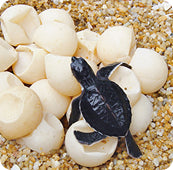Grill like the environmental pros
Grill like the environmental pros

Hardly anyone can imagine a summer without a barbecue.
What is now part of the standard German meal also has its downsides. In this blog post you can read about what a cozy barbecue evening does to the environment and how you don’t have to do without your barbecue fun with sustainable alternatives.
fact check
- Approx. 2.5kg of CO2 are generated per barbecue evening, of which 95% of the emissions come from the barbecued meat.
- 97% of Germans barbecue several times a year
- 80% of charcoal is incorrectly declared as regional, even though it comes from the tropics
- It takes ten tons of wood to make one ton of charcoal
- While more than 60% can imagine doing without vegetables when grilling, only 15% of Germans can imagine doing without meat.
charcoal
In order to be sure that only the best goes in and on the grill, you should already open your eyes to the charcoal.
Germany imports an estimated 98% of charcoal. Most coal comes from Poland or Paraguay. Charcoal from developing countries is a particular problem as it is a by-product of deforestation for plantations and livestock and often comes from illegally logged tropical forests.
BUND recommends looking for a Naturland seal. Other seals that assure you of regional charcoal are PEFC, the DIN EN 1860-2 test mark, which guarantees fewer toxins, or the FSC seal.
Insufficient information is provided without a seal that it is tropical wood of natural origin or a natural product. Without a seal as evidence, these legally unclear statements are worth nothing.
But be careful: stay away from old wood, conifer branches and paper, because these materials release carcinogenic substances and do not belong in a grill.
Alternative to charcoal
- bamboo charcoal
Bamboo grows very quickly and becomes lignified after only three years. Bamboo is therefore a rapidly renewable raw material and burns CO2-neutrally, sulphur-free and even has three times the burning time of charcoal.
- Charcoal from coconut shells
This charcoal is a pure waste product with a calorific value three times higher than charcoal, less smoke development and only 2% residual ash.
- Olive stone briquettes
The briquettes are made from waste from the olive oil pressing, i.e. from seeds, skins and pulp.
tips
- Avoid gasoline and other chemical lighters and instead use natural lighters made from wood scraps with wax.
- Avoid disposable grills. Yes, they are super cheap, but you can only use them once, which makes them an ecological sin. They also char the lawn on which they stand, which is why they are banned in Hamburg parks, for example. Many parks have public grills that you can use for a small fee.
- Aluminum grill trays are harmful to health, so use alternatives such as cabbage leaves or ceramic grill trays or similar.
What's on the grill...
You don't want to do without meat when grilling? Then grill with organic meat and generally pay attention to the quality and origin of the meat. Avoid ready-marinated cheap goods. The Bioland, Naturland and Demeter symbols guarantee species-appropriate animal husbandry, read the following blog post about this: Get out of the seal jungle .
With fish you can look out for seals such as MSC, ASC or FOTS.
Or try it without meat: Grilled vegetables simply taste great, are regional, vegan, maybe even grown yourself and are easy to prepare. And numerous vegan and vegetarian meat alternatives are currently conquering the market and consist, for example, of soy strips, tempeh, seitan, cereals, beans, lentils or sweet lupins.
Our tip
Did you know that grill lighters can also be easily made yourself? For example from spruce cones. To do this, tie some packing tape remnants around the pivots (fuse cord). Then wrap the cone with newspaper/toilet paper. Melt leftover wax and pour over the tap. Leave overnight and you're done.
Here are the exact instructions again: DIY grill lighter
If you would like to be informed directly about the latest blog posts, please follow us Instagram ! :-)











